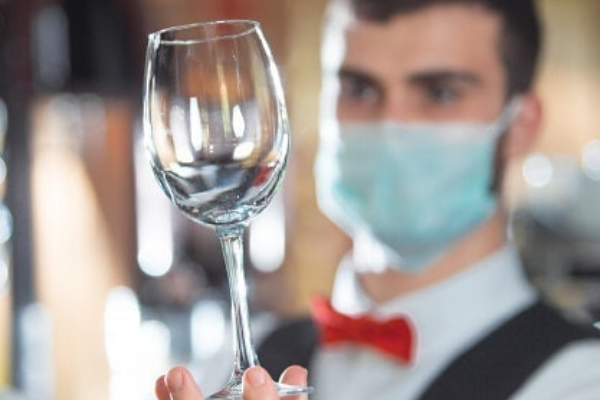
Two months after Turismo de Portugal launched the national "Clean Safe" seal to recognise companies in the tourism sector that comply with the recommendations of the Directorate-General for Health to avoid contaminating spaces with the new coronavirus, the World Travel and Tourism Council (WTTC) has introduced the world's first seal of guarantee for tourism companies.
This new, free seal will allow travellers around the world to recognise companies that have adopted standard health and hygiene protocols, aims to ensure safe travel and has been approved by more than 200 CEOs of some of the world's largest tourism groups.
While Portugal, as a tourist destination, was the first European country to receive the "Safe Travels" label, sectors linked to tourism such as hotels and restaurants are also eligible to receive this seal. To achieve this, companies in these sectors will have to, among other things, draw up safety, cleanliness and hygiene protocols (not only for their customers, but also for all staff) which include, among other things, temperature checks, constant disinfection of common areas, implementation of social distancing measures at restaurant tables and when serving the public with the use of, for example, acrylic panels, strict rules for handling food and the incorporation (and prioritisation of the use) of contactless means of payment in their facilities.
In the latter area, the REDUNIQ has to offer to Hospitality e Restoration a Contactless TPA state-of-the-art technology that guarantees not only the safety and hygiene of the business and the customer (the contactless/smartphone/wearable card does not touch the payment terminal) but also speed (transactions between 4 and 12 seconds), a reduction in cash handling costs (optimised payment process and easier accounting), higher average transactions and the guarantee that the payment is made.
This automatic payment terminal (fixed or mobile TPA) is also equipped with the contactless technologya practical and safe solution. A REDUNIQ is the only acquirer in Portugal with PCI DSS certification, the purpose of which is to ensure the confidentiality and integrity of sensitive data associated with the use of cards by their holders, which ensures that the entire payment process is truly secure in all its dimensions.
As a result of the needs arising from the pandemic, it became possible in Portugal to realise contactless payment transactions up to €50You can also use contactless technology for purchases over €50, instead of the previous €20, without having to enter your card's PIN and if you haven't yet reached the overall amount of €150 per day or a maximum of 5 transactions per day. For purchases over €50 it is also possible to use contactless technology, albeit with the need to enter a PIN. automatic payment terminal smaller.
"Safe Travels: who can apply and what are the conditions?
Companies interested in obtaining the new "Safe Travels" label must fulfil a number of conditions, the main one being compliance with the protocols defined (which we'll explain below), which may be updated by the WTCC as the pandemic evolves.
To apply, companies must make sure they have already implemented the protocols defined and fill in a form. They will then be redirected to a page where they can download the label and add their own logo. Once awarded, they must use the hashtag "#SafeTravels" when posting on social media.
Guide to obtaining "Safe Travels" from the World Travel and Tourism Council (WTTC) in Hotels and Restaurants
- They must draw up a Covid-19 prevention guide that includes a special disinfection and cleaning plan and an infection prevention action plan;
- Sufficient staff to guarantee the quality of the service and compliance with the hygiene and health measures required by the health authorities;
- Implementation of health and safety protocols, including check-ups for all staff if required by local legislation. If not mandatory, as in the case of Portugal, hotels should adopt a mandatory quarantine policy for anyone showing symptoms of Covid-19;
- Implement social distancing measures when dealing with the public (use of acrylics on the counters, for example) and limit the number of employees working in the hotel's common areas;
- Provide contactless payment methods and favour their use;
- Implement food safety protocols in the hotel's cafés, restaurants and kiosks in relation to the supply chain, food handling and preparation, queue management and hygiene. Technologies such as electrostatic spraying, UVC lights or HEPA air filtration should be adopted for cleaning and disinfecting these spaces;
- Create and implement operational plans and a Code of Conduct for all staff and cleaning teams;
- Increase the frequency of cleaning/disinfection. The disinfection products selected must be approved by the local health authorities;
- Cleaning in all areas of the hotel, including rooms, bathrooms, lifts, gyms and common areas, with a specific focus on high-frequency contact points such as room key cards, light switches and door handles. Foreign items should be removed from the entire hotel;
- Social distancing guaranteed for guests through signs and guidelines, including in lifts;
- Guest health/temperature checks, if required by law. Social interaction should be limited;
- In the case of buffets, customers should avoid handling the food;
- Regular cleaning of the machines and, where possible, operated by a member of staff;
- Favour room-service as a contactless service solution;
- Improved cleanliness, including disinfecting tables immediately after the customer leaves and implementing social distancing through spacing between tables and chairs;
- Consider minimising what is placed on tables and providing items with unique packaging if possible;
- Create protocols and guidelines for water/refreshments, in which it is recommended that guests travel with their own refillable water bottles in areas where safe drinking water is available. Make individual water bottles available as an alternative and implement food protocols and guidelines related to food from outside sources;
- Clear and consistent communication with customers about the new safety, health and hygiene protocols through the organisation's digital channels and/or physically in the hotels. Reception staff must be trained to answer all questions relating to the hygiene and health protocols implemented;
- Implement clear signage throughout the hotel to inform guests about cleaning protocols, social distancing and recommendations.
- Clear guidelines on the use of face masks, guidance on hand hygiene and social distancing;
For the complete guide, see https://wttc.org/COVID-19/SafeTravels-Stamp-and-Assets
For the Application Form see: https://wttc.org/Membership/New-Membership-Enquiries


